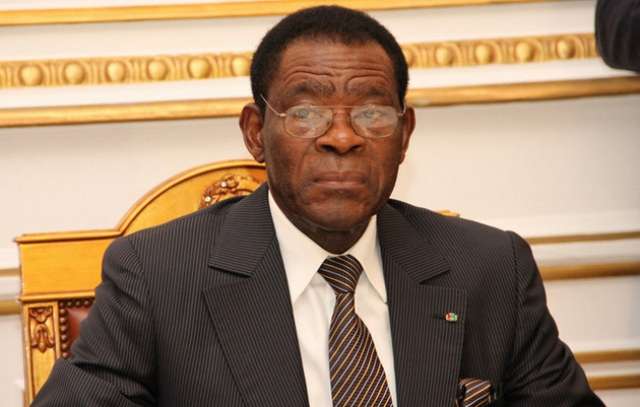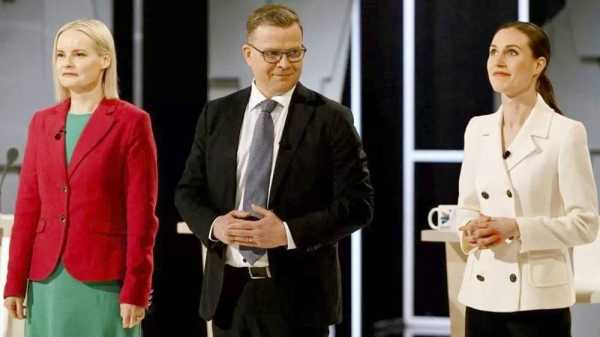
By Kieron Murdoch | Opinion Contributor
Donald Trump will be returning to the White House in 2025 after what has been a very tumultuous campaign that saw him survive an assassination attempt that left him bleeding. His return causes us in Antigua and Barbuda to question what it will mean for us, our region and the rest of the world we share with so many peoples, faiths, colours and nationalities.
The broadest impact is perhaps the dangerous political example it creates as regards the effectiveness of a certain style of populist politics in democratic spaces. Populists are persons, especially politicians, who strive to appeal to ordinary people who feel that their concerns are disregarded by established elite groups.
They play on the people’s feeling of being sidelined and forgotten and demonise various establishments. In Trump’s case, his establishment boogeymen tend to be institutions of the US government that underpin its democracy, as well as the mass media. His message has been, the government is rigged, the voting system is rigged (unless he wins), the media is rigged.
His rhetoric in this US election has been inflammatory. “Rapists are pouring over our border” and “all the criminals are coming here” are the kind of statements designed to stoke fear and hatred as motivators for political action, alongside the many who voted for many other reasons such as the state of the US economy. But for many, policy becomes less relevant and emotion and passion over divisive issues plays an ever greater role.
We should be wary to ever allow such a brand of politics to take root in the West Indies. It goads people into a fervent and irrational mistrust of their institutions and replaces it with ardent support for a person rather than a principal. The end result is a cult of personality which is hard to erode, as evidenced by Trump’s iron grip over his party nationally, and the growing weakness of moderate conservatives in the US.
When it comes to the impact of his policies on the rest of the world, there is less uncertainty as to what a Trump Presidency will look like this time around as compared to his first round. People now have the benefit of his habits in office during his first term, as well as a clear indication and articulation of at least some policy positions during his campaign.
The Caribbean itself is not a major focus for US policy outside of a longstanding inflexible US stance against ending its embargo against Cuba and broad US concern over the stability in Haiti. The rest of the region is largely peaceful, stable, and not so economically or strategically significant, that we attract much attention.
Regardless of who Caribbean citizens and residents may have preferred to see in the US White House, the nature of democracy is such that you end up having to do business with whomever is elected to the curule chair. We have done business with a Trump whitehouse before, albeit a more moderate one, and we will do so again.
On issues that affect us, like US commitment to emissions reduction, transitioning to cleaner energy, and supporting climate adaptation in small countries like ours, we know that the next four years will be defined by climate scepticism from the White House, and the prioritisation of economic objectives in the short term over climate and environmental objectives in the long term.
On China, Trump has signalled that he is preparing to up the pressure between the two nations on the issue of trade and economic relations. It remains to be seen the extent to which he will hold true to the direction he signalled during his campaign or whether he will moderate, as politicians sometimes do, when they have a fuller sense of the implications once in office.
Small as we may be, nestled beneath the Leviathan, we will surely be impacted by the ripple effects of any tariff wars or trade disputes between the world’s two largest economies, as will the rest of the globe. With inflation already what it is, we can only hope that the impacts of any dispute are minimal, or not adverse at all.
There is no reason thus far to suspect that our close relations with China will be of any consequence. China maintains development relations and financial arrangements with most countries and we do not particularly stand out. It was never an issue before and is unlikely to be one now.
In Guyana, one cannot be certain whether a Trump or Harris presidency would have been more favourable, as that country grapples with a crisis stricken neighbour in Venezuela whose President has in the recent past signalled his government’s desire to seize a swathe of Guyana which Venezuela has historically disputed as its own.
A Harris presidency would perhaps have been more favourable to a Guyanese government that wanted to keep the tensions with Venezuela to a minimum, whereas a Trump presidency may be more favourable to a Guyanese government that may want to be more assertive with Venezuela and wouldn’t mind some US backing in doing so. But Guyana has signalled its desire to reduce tensions not escalate them.
One cannot say that the Biden administration has done a great deal to assist the situation in Haiti. But then again, what can really be done? The US and others have many examples to choose from, of past interventions and heavy handed direction of affairs in that troubled Caribbean Community (CARICOM) country leading to poor outcomes.
President-elect Trump will probably take as little interest in what happens there as his predecessor. If so, the US will simply continue to offer support to the collective international regional support mission which has not yet yielded much. No President seems interested in expending more US diplomatic effort there and internationally to help bring more resources to bear to assist that country, despite its being a stone’s throw away.
For those persons who value the advancement of liberal ideas such as democracy and human rights, Trump’s stance on Ukraine and the extent to which he is unwilling to challenge Valdimir Putin is worrying. Yes, there are many in Antigua and Barbuda, and in the Caribbean who think that such conflicts are outside of our orbit of concern.
Yet, we are part of the world and affected by all that takes place within. The interaction between global powers and the extent of their sphere of influence should concern us, if not as Antiguans and Barbudans, or as citizens of Caribbean countries, then merely as politically aware human beings living on the same planet.
The advance of liberal values in our own countries and in every corner of the globe is to our benefit and to the benefit of the long term prosperity of nations. These encompass ideas such as democracy, personal liberty, the consent of the governed, the right to private property, equality before the law, secularism, rule of law, freedom of speech, freedom of the press, freedom of assembly, and freedom of religion.
These are the ideas upon which our own nation is premised – ideas we often neglect to pay homage to and which are under threat at times even in our own nations, though we have done comparatively well to avoid the sort of human rights backsliding and democratic backsliding that has defined the modern history of some other nations.
The US has by no means been a paragon of these virtues in the last century. It has often pursued its own self-interest relentlessly depending on which President was in power, what business interests had the administration’s support, and what it perceived the threats to its position to be. Nonetheless, it has advanced the aforementioned values in its position as the globe’s foremost military and economic power.
The US under Biden has so far been willing to support Ukraine in fighting off a Russian invasion – an invasion which signalled Putin’s desire to maintain a sphere of illiberal influence in Europe by force if needed. Trump has signalled that he would be more interested in ending the conflict, which no one could disagree is the right goal.
But his criticism of US strategy and of Ukraine’s leadership has made it clear that he is less interested in the conflict ending on terms favourable to Ukraine’s territorial integrity and its right to self-determination, and more interested in ending US support for a conflict that is costly, protracted, appears unwinnable, and which he may see as Europe’s problem’.
Such a stance may lead to a bolder Russia, willing to intervene more in European, Asian and African affairs in support of illiberalism. That is not a safer or more prosperous world for anyone by any measure. One may anticipate a more rocky relationship with NATO, but NATO is likely to largely fall in line with Trump’s agenda for its own survival and stability.
While neither candidate made any meaningful commitment on bringing about a permanent cessation in Israel’s deadly campaign of retribution since the October 7th Attacks or on advancing the notion of a two state solution, Trump’s election will certainly mean the complete abandonment of any US attempts to have the Israelis temper their war in Gaza.
Benjamin Netanyahu – a right winger who has been at the helm of Israel longer than anyone else in that country’s history – has resisted intense internal political pressure and a rather paltry level of external diplomatic pressure to rein in the conflict, allow humanitarian access to Gaza, prioritise civilian life, and negotiate a hostage release.
Netanyahu will now be emboldened and may even announce the annexation of parts of Gaza and a new settlement drive, which will further expand the Israeli state, further delegitimize the notion of Palestinian self-determination, and further concentrate of population of Gaza under conditions of hopelessness, squalor and famine.
While it does not yet appear that his administration will pursue any radically isolationist agenda, it has long been clear and has been much discussed that a second Trump administration makes winners and losers out of many countries and groups outside the US who rely on or hope to rely on US support in their diplomacy, peace talks, trade relations, defence arrangements and wars.
Such is the nature of democracy. Administrations come and administrations go.
About the writer:
Kieron Murdoch worked as a journalist and later as a radio presenter in Antigua and Barbuda for eight years, covering politics and governance especially. He is an opinion contributor at antigua.news. If you have an opinion on the issues raised in this editorial and you would like to submit a response by email to be considered for publication, please email [email protected].






That bias commenting sounds like a Democrat to me says nothing of congrats to a new president just pointed out his thoughts on what may be …chuuupes..if the opinion writer can say such then I think I can well be a contributor too…one sided contribution piece
It is after all an opinion. People are meant to disagree and agree. You should send in your thoughts too. I think they publish them. There’s an email there.
Visine not working then, huh.
We are talking about the same Donald trump who don’t like the blacks here? We are talking the same Donald trump who find it fit to disrespect women? We are talking about that Donald Trump?